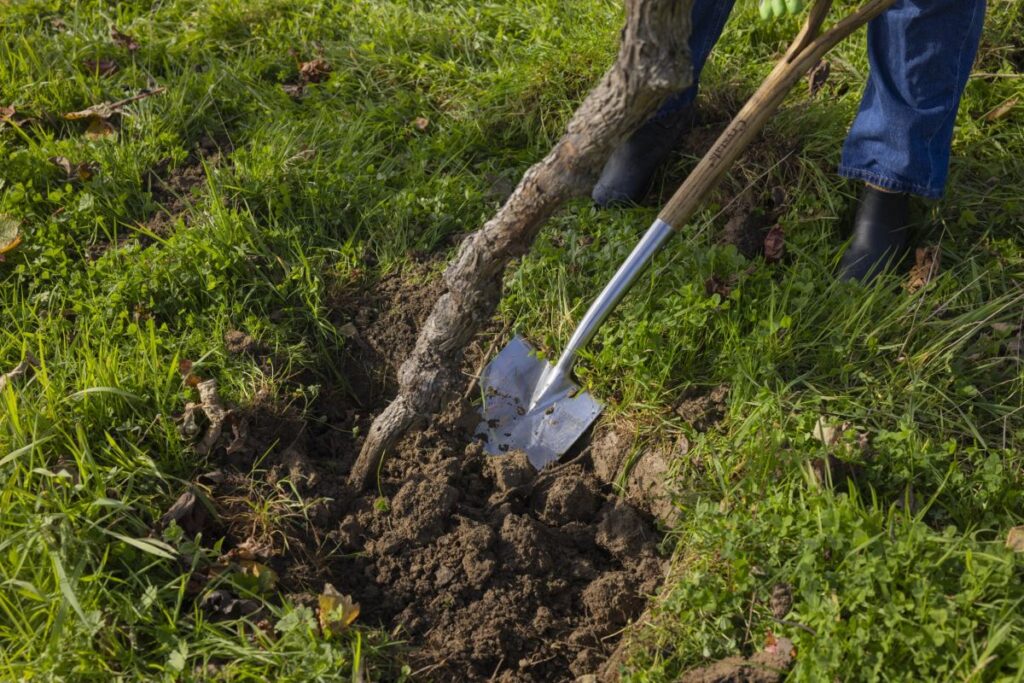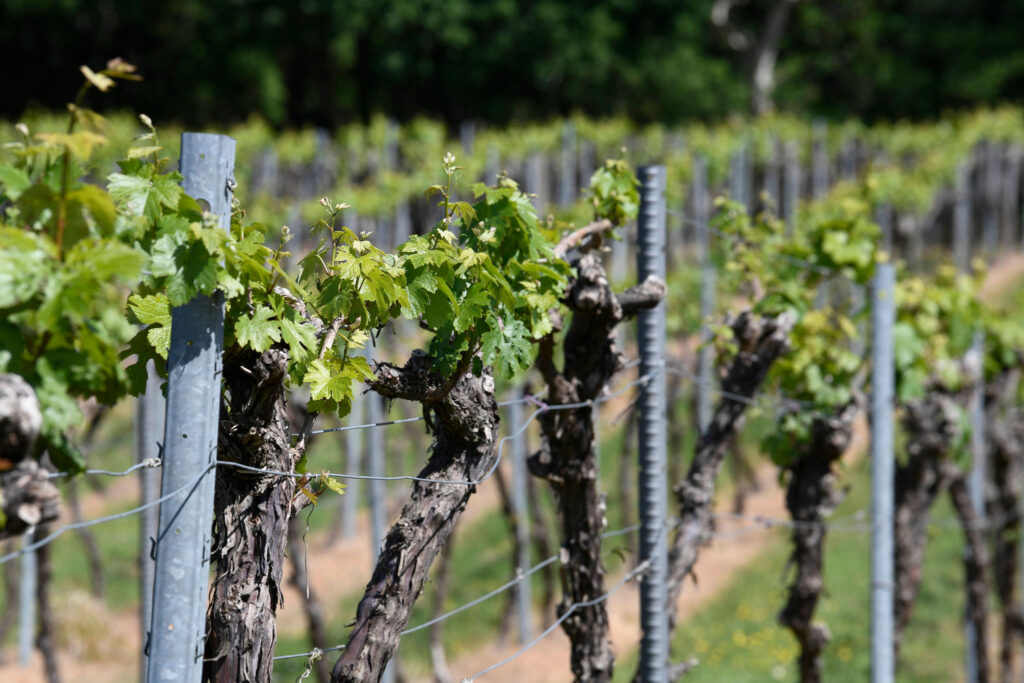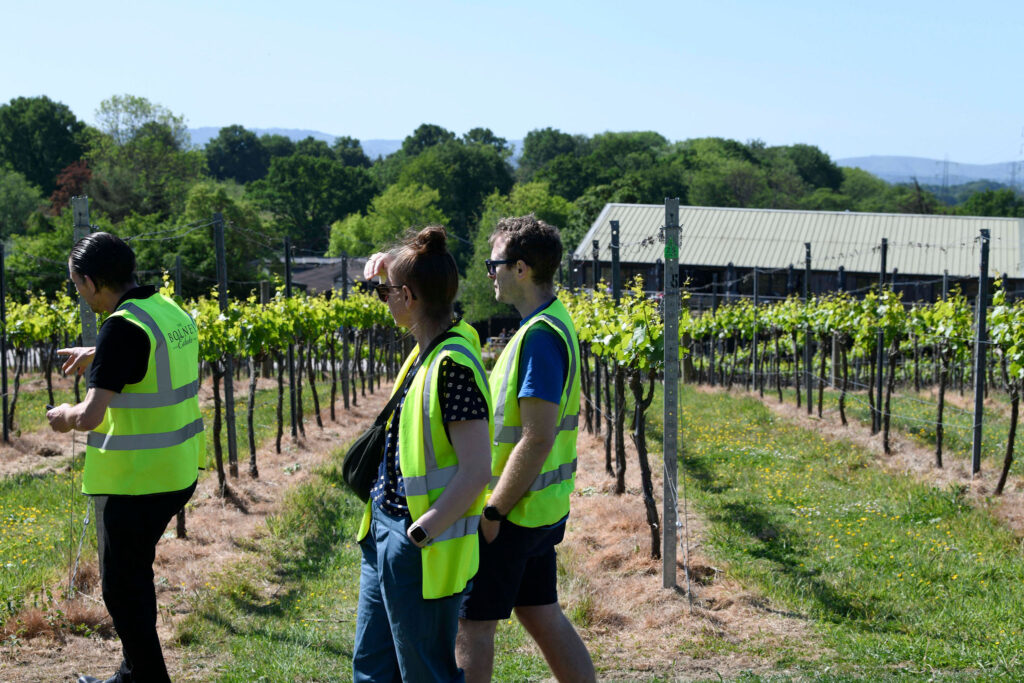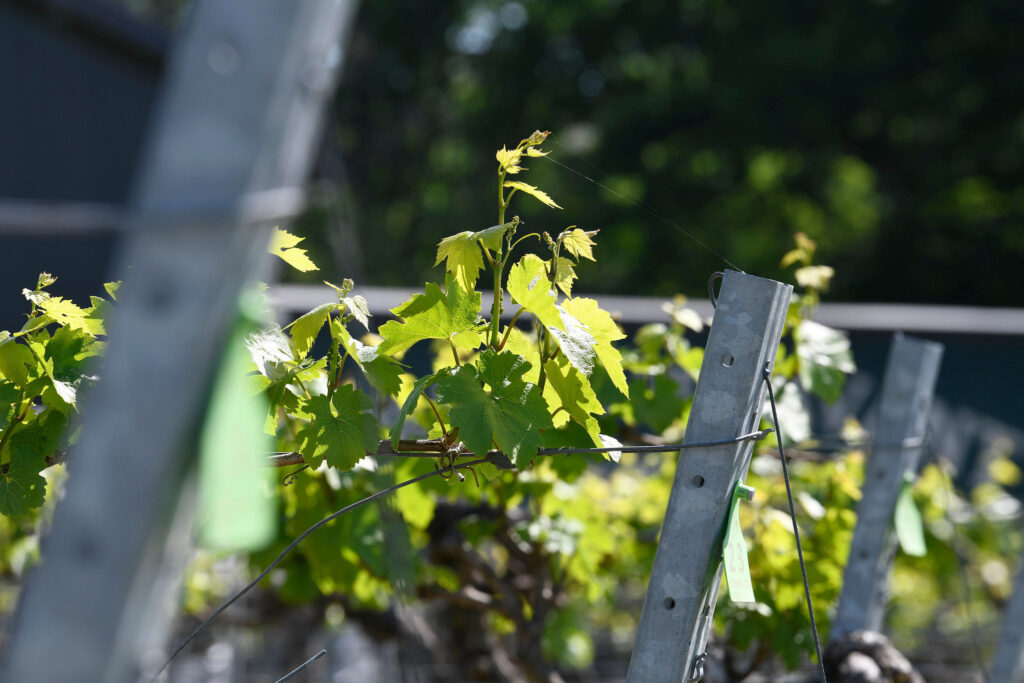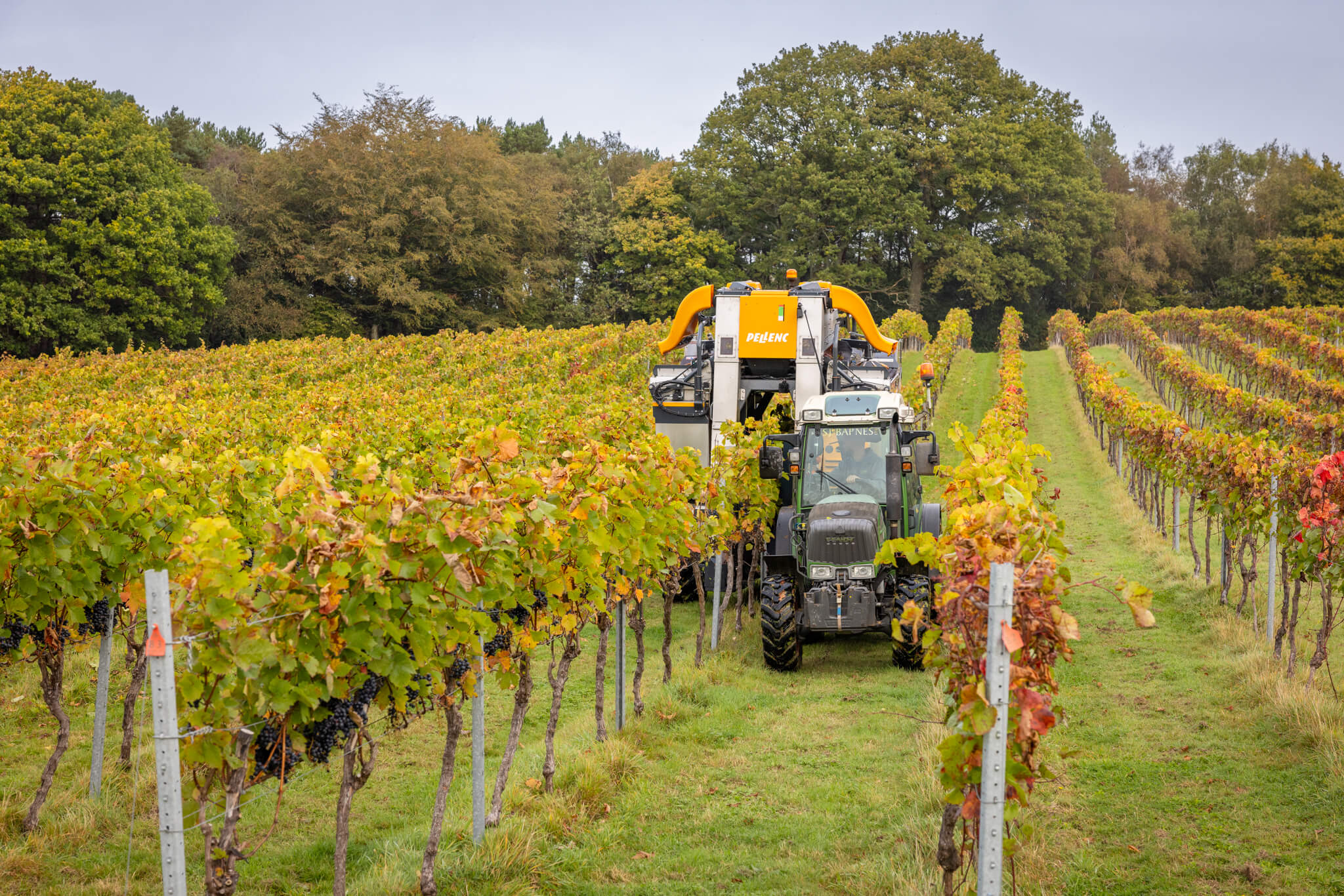If you notice a rumble coming from our Sussex vineyard this autumn, don’t fret – it’s the sound of progress! To make sure our English sparkling wine continues to shine for the next generation, we’ve made a big decision: we’re grubbing up 10,000 of our original vines and starting over.
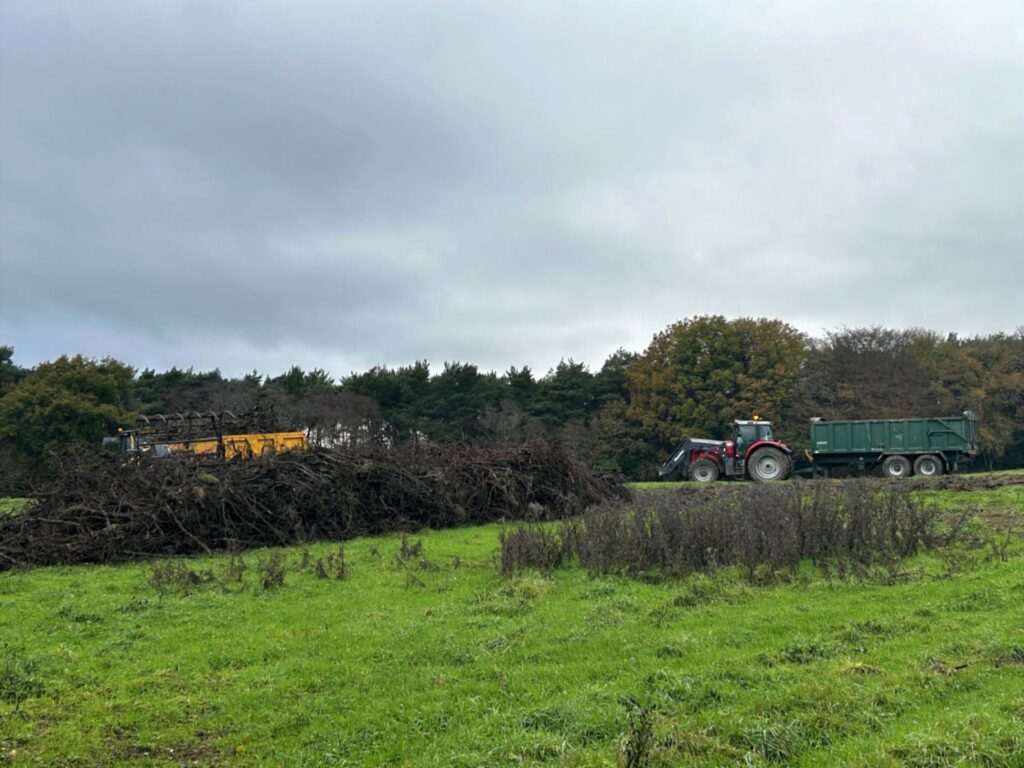
What is Grubbing Up?
“Grubbing up”, or “grubbing”, is the term we use for carefully uprooting old vines. It sounds quite drastic, but it’s an essential part of vineyard life! Grape vines, like all plants, eventually age, and older ones are more prone to diseases and produce less fruit.
After we remove the old vines, the soil gets a well-deserved break to rest and rejuvenate before we replant.
It gives the land a new beginning, allowing us to cultivate healthy, high-quality vines that will contribute to our future wines.
The 2-Year Plan
A vineyard transformation that will take two years to complete, the grub up is the most important project we’ve embarked on in the last half-century.
The grubbing-up plan:
- Autumn 2025: Uprooting the old vines
- Spring 2026: New vines will be replanted
- Autumn 2026: A second phase of uprooting the remaining old vines
- Spring 2027: A second phase of replanting new vines
The project is a huge undertaking, but worth it for our legacy — to ensure that every bottle we produce over the next three decades maintains the character and complexity our wines are known for.
Choosing the Best Grape Varieties
Our original vines, planted in 1972, have been truly remarkable, providing us with years of fantastic fruit and invaluable lessons along the way. As our Head Winemaker, Cara Lee Dely, puts it, this planned refresh allows us to hit the reset button and concentrate on working with only the finest, healthiest fruit.
Collaborating with top experts, Dr Alistair Nesbitt and his team at Vinescapes, we’re making thoughtful decisions about what to plant for the next two or three decades. We’ll be replacing the grubbed-up vines with the classic grapes of Champagne: Chardonnay, Pinot Noir, and Pinot Meunier.
Why these three? Because they produce the delicious traditional-method sparkling wines you adore. Plus, they’re the perfect match for our unique Sussex terroir and its ever-changing weather.
Healthy Soil for Better Wine
We want to create the finest fizz while also exploring fresher, lighter styles of still wines that fit with today’s drinking preferences. The grubbing up project is part of our investment in the long-term stewardship of our land to make this happen.
At the heart of the farming plan is healthy soil. Our vineyard team will use sustainable techniques like regenerative viticulture, which means we’ll use natural methods — like planting special “cover crops” — to nourish the soil, reduce herbicide use, and support local wildlife.
So, besides growing exceptional grapes, we are actively working to enrich and fortify the vineyard ecosystem for generations to come.
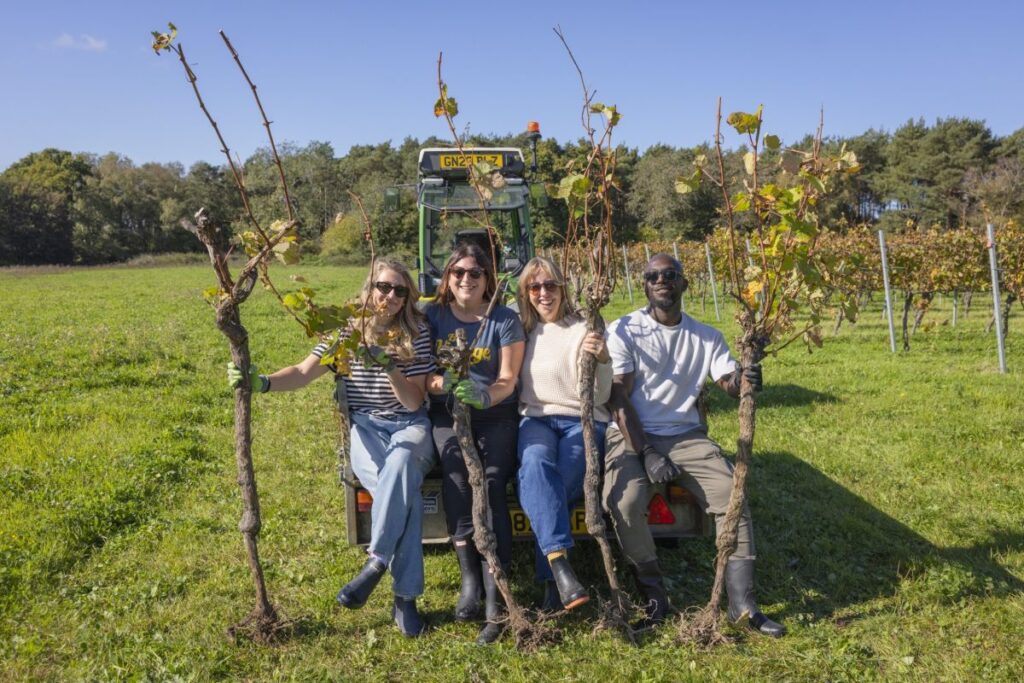
Come and See the Changes
Great news for our visitors: we’re rolling out our updates in two stages, so the wine will keep flowing just like always. Thanks to our relationships with talented growers across Sussex and the South East, Bolney wine production will carry on without a hitch.
And the best part? The Estate remains fully open!
You can still soak up the full experience while we make these changes. Our café and wine bar, shop, restaurant, and tasting rooms are all set to welcome you. Plus, our popular vineyard tours will give you an exclusive glimpse into this amazing transformation. You’ll get to see firsthand how we’re laying the foundation for the next 30 years of English winemaking. We can’t wait for you to come visit us and raise a glass to this new chapter.
Book your Sussex Vineyard Tour
Visit us to see the new vines! Book a vineyard tour and tasting session to see the replanting in action and enjoy our current selection of wines.
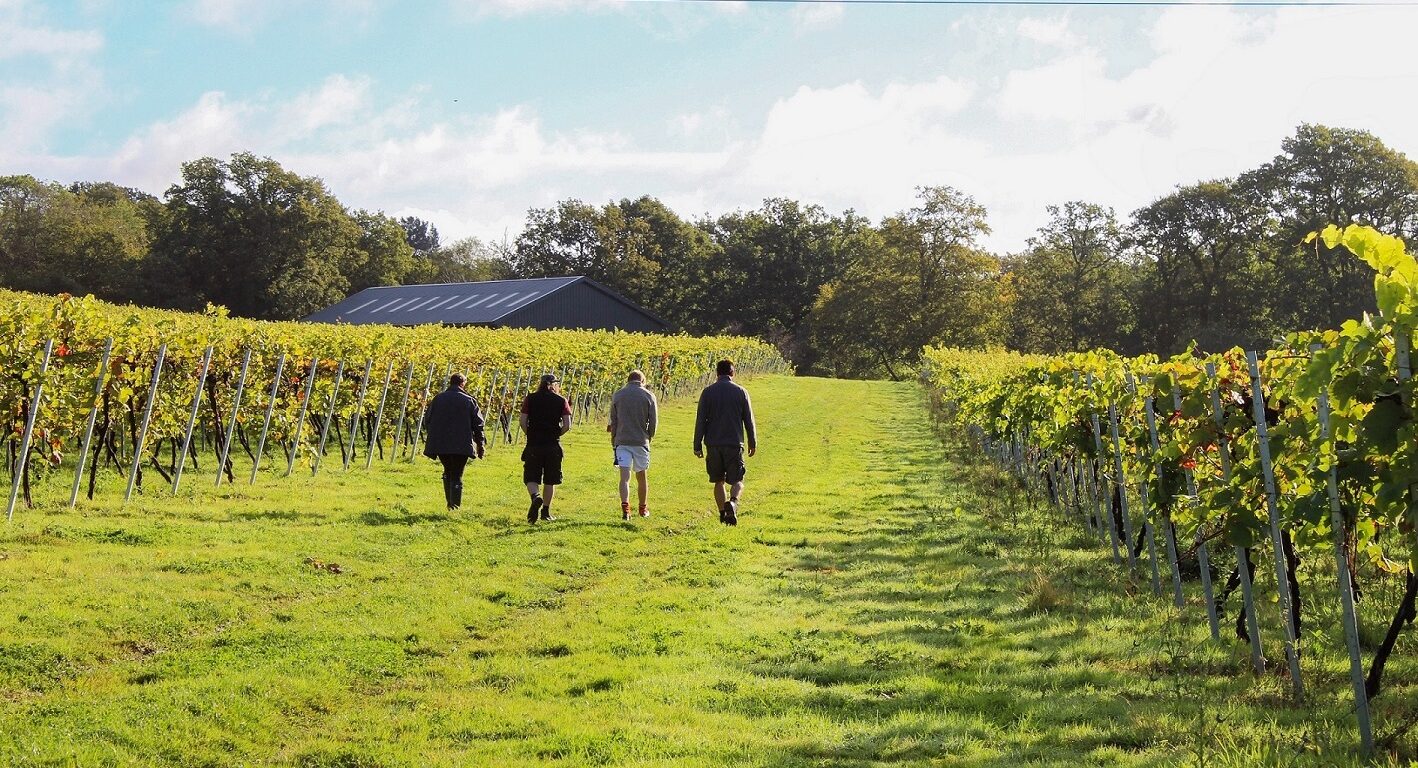
Meet The Vineyard And Winery Team
As our 2021 harvest continues, we wanted to celebrate some of our amazing team who have made it such a success. From our vineyard team who have worked around the clock to care for our grapes over the past year, to our winery team who are taking those grapes and making them into the award-winning wine you know and love. Read on to find out more about some of the faces behind harvest.


